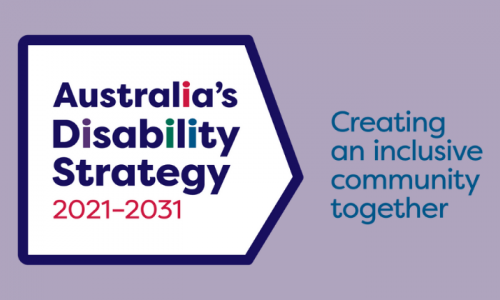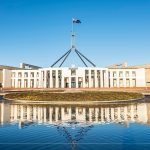This year’s budget is earlier than usual, ahead of an expected announcement of a Federal Election sometime in May.
MS Australia’s analysis of this year’s Budget is through the lens of the two areas of fundamental need for people living with MS – firstly, better treatments, prevention and ultimately, a cure for the disease and secondly improved support for management and care, particularly through systemic improvements to the health care, disability care and aged care sectors.
Research
MRFF grant opportunity for MS research
MS Australia is delighted to see the announcement of an $18 million grant opportunity from the Medical Research Future Fund (MRFF), for Multiple Sclerosis Research to “provide access to clinical trials and accelerate availability of effective therapeutics for the treatment of Epstein Barr Virus infection, and improve understanding of how immune responses to viruses vary across individuals to inform disease prediction and treatment pathways to ultimately reduce the prevalence and severity of multiple sclerosis and post-viral diseases”.
This allocation comes on top of a $4m grant opportunity announced in December for a clinical trial that tests nerve repair and protection therapeutics for MS, making a total allocation of $22m in the past four months.
You can read more about this grant opportunity here.
Nursing
An allocation of $20.3m from the MRFF for “Nurses, Midwives and Allied Health to support nurses, midwives and allied health professionals to improve the quality of health care, practice and systems by undertaking applied research in health care” is very welcome. This could provide an important opportunity to advance MS Australia’s work to improve access to specialist MS Nurses.
Clinical trials
An allocation of $37.8m for “International Clinical Trials Collaborations to increase Australian leadership of, and participation in, high quality international collaborative clinical trials across six grant opportunities over the next three years” is also welcome and will be important for the work of MS researchers in Australia, given their excellent links and collaborations with the international MS research community.
These allocations align with MS Australia’s Implementation Plan for its Roadmap to Defeat MS in Australia. MS Australia is well positioned to work with MS-focused researchers across Australia to maximise the benefits these opportunities afford.
Health
Lowering of the PBS Safety Net threshold
- From 1 July 2022, the PBS Safety Net threshold in each calendar year will be lowered by the equivalent of 12 fully priced scripts for concession card holders and the equivalent of two fully priced scripts for non-concessional (general) patients.
- For concessional patients, the safety net threshold will be lowered from $326.40 to $244.80 a saving of up to $81.60. When concession card holders reach the safety net threshold, after 36 full priced concessional scripts, they will receive PBS medicines at no charge for the balance of the year.
- For general patients, the general safety net threshold will reduce from $1,542.10 to $1,457.10 a saving of up to $85.00. This means that after the equivalent of about 34 full priced general co-payments, general patients pay only the concessional co-payment of $6.80 per PBS script for the balance of the year.
Permanent, universal telehealth
The introduction of telehealth through Medicare, following the outbreak of the COVID-19 pandemic in 2020, is one of the most fundamental changes to health care since Medicare began. It has improved access to all types of health care, especially for those in regional and remote locations.
Improving rural access to magnetic resonance imaging (MRI) diagnostics
- A $66 million investment to deregulate and expand access to Medicare funded magnetic resonance imaging (MRI) services and will provide critical diagnostic imaging services to more regional and rural Australians.
- Currently, over 50% of rural and remote patients travel significant distances to receive their Medicare funded MRI. This will also help reduce the pressure on out-of-pocket costs and improve disease detection and management for regional, rural and remote patients.
Aged care
In last year’s budget the Government outlined a new, 5‑year, $17.7 billion plan for the sector. The plan included new home care packages, training places, respite services, retention bonuses and infrastructure upgrades. Under this plan, 40,000 home care packages, almost 34,000 additional training places, 7,000 new personal care workers and 8,400 respite services will be rolled out from this calendar year.
Disappointingly there were no new measures announced in this year’s budget to make the much-needed, substantial improvements to the aged care workforce.
NDIS
MS Australia was very pleased to hear the Treasurer state that funding for the NDIS is guaranteed and that a fully‑funded NDIS is part of the Government’s plan for a stronger economy.
A commitment to the future of the NDIS is vital for Australia’s MS community. The return on investment is enormous, enabling people to stay in their own homes, live independently, keep working and have a social life equal to that of the broader population. The impact on quality of life is extraordinary.
However, here are millions of Australians who live with a disability that are not eligible for the NDIS and unfortunately there were few measures in this budget designed to ensure their needs are met.
Cost of living relief
Several cost of living relief measures were announced in this year’s Budget that will benefit people with MS on low and middle incomes:
- From 1 July this year, over 10 million individuals will receive a one-off $420 cost of living tax offset. Combined with the low and middle income tax offset (LMITO), eligible low- and middle-income earners will receive up to $1,500 for a single income household, or up to $3,000 for a dual income household.
- To help Australians meet cost of living pressures, the Government is providing a one‑off, income tax-exempt payment of $250. It will be paid automatically to all eligible pensioners, welfare recipients, veterans and eligible concession card holders in April 2022.
- The Government will reduce fuel excise by 50 per cent for 6 months. This will see excise on petrol and diesel cut from 44.2 cents per litre to 22.1 cents per litre.






